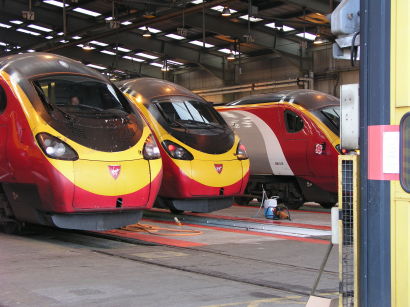THE RELETTING of the key West Coast franchise appears to have fallen into disarray, with the planned start date for the next contract now set to be postponed by at least ten months.
The replacement franchise had been intended to begin on 1 April 2012, and run for 14 years.
The Department for Transport is declining to comment on a report that the government's operator of last resort, Directly Operated Railways, is the official favourite to take over the franchise from Virgin next March, and run it until at least January 2013.
The alternative would be to extend the present Virgin West Coast franchise, which began in 1997 but had to be renegotiated after the West Coast Main Line upgrade became a victim of soaring costs, unachievable targets and missed deadlines.
Negotiations with Virgin over a possible franchise extension beyond next March are believed to be in progress, but the Department for Transport will only say that 'an announcement will be made in due course'. Virgin has also refused to comment.
Signs of current problems with reletting the West Coast franchise emerged a few days ago, when the Department failed to issue the Invitation to Tender, due on 10 May, to the shortlisted West Coast bidders. They are Abellio, FirstGroup, Keolis/SNCF and Virgin Trains.
Since then, Virgin has unexpectedly agreed to operate the first of four new Pendolinos from July, having earlier refused to take the additional trains unless its franchise was extended by two years to 2014, which the DfT refused.
Industry observers are also suggesting that the franchise reletting process has ground to a halt until after the McNulty report on railway Value for Money is published on Thursday.
After the collapse of Railtrack, which had been responsible for the faltering West Coast Main Line upgrade, Virgin ran West Coast on a management contract basis on behalf of the Strategic Rail Authority between July 2002 and December 2006.
When Virgin and its partner Stagecoach, which owns 49 per cent, took over full control again after agreeing revised terms, the premiums of some £1.2 billion which would have been payable between 2002 and 2012 had become subsidies worth about the same amount. This effectively cost the taxpayer a total of almost £2.5 billion.


